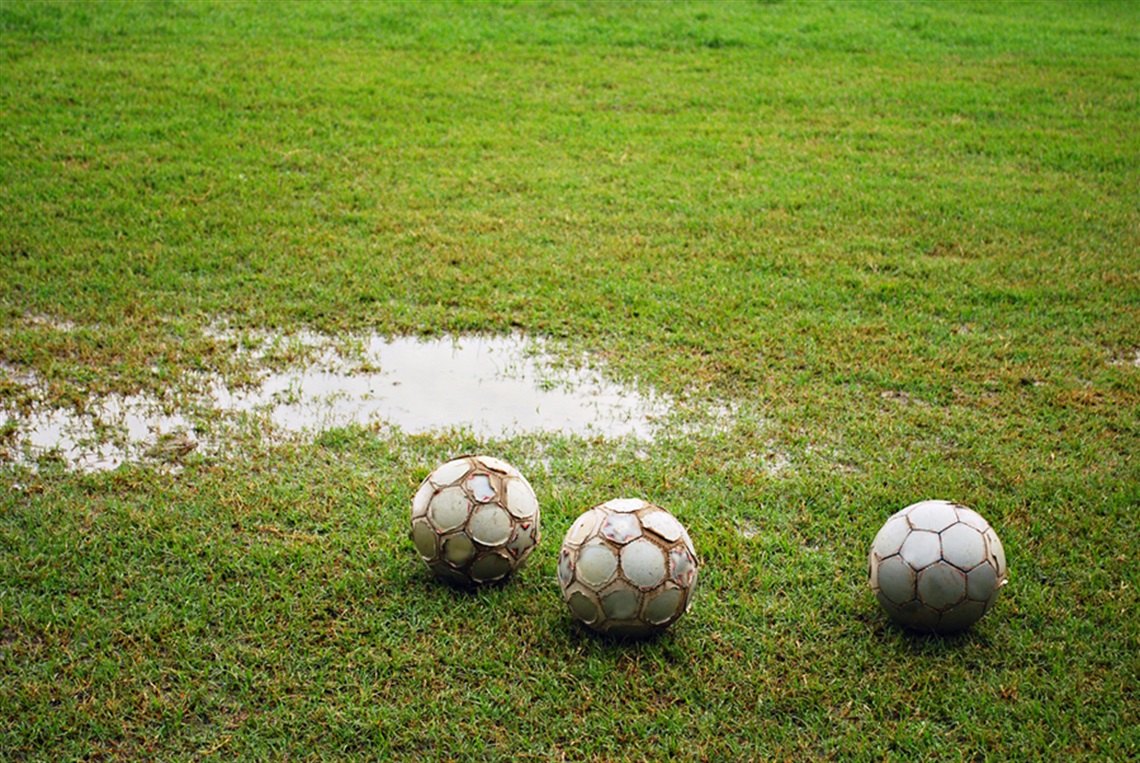It's not Raining, Why are Fields Closed?
Published on March 28, 2024

Every athlete knows there are two things you can’t control, the referee or the weather. We close our fields for inclement weather, and we open them depending on how quickly we can get them to recover.
Our goal is to have as many people as possible enjoying our fields on any given day.
 While we are proactive so our fields can last a season, we also want to ensure our players last as well. Soggy fields can cause injuries as can the consequences from them as they dry unevenly and with holes.
While we are proactive so our fields can last a season, we also want to ensure our players last as well. Soggy fields can cause injuries as can the consequences from them as they dry unevenly and with holes.
For diamond fields, Arlington uses the region’s industry standard for criteria for both infields and outfields standard to determine whether a field is safe to play on or not. Factors such as standing water, muddy/unstable infields and saturation are considered unsafe playing conditions and are the main drivers in decisions to close fields.
Parks and Recreation makes every effort to speed up the process of making fields playable after large amounts of rain. We do our best to remove standing water and apply a drying agent as needed/necessary. A number of youth leagues volunteers have been helping get fields deemed iffy for play by our crews potentially ready for play by the evening. This inclusion has led to many more diamond fields being left open.
Parks and Recreation waits until 2:45 p.m. before closing a field to give them as much time as possible to dry out before they are assessed. This process has been honed over the years to balance the desire to play the games or get in practices with the safety of participants and the long term-health of our limited athletic field space.
As for rectangle fields, we have also honed the process to avoid making blanket cancellations as much as possible. We utilize two different types of grass on our fields – Bermuda grass and fescue – and there are some occasions where we are able to open fescue fields but not Bermuda, particularly during the first couple months of spring when Bermuda is still dormant and more prone to saturation. Conversely, there are times where more fescue fields are closed since they are more prone to having bare, muddy patches, particularly those at heavily used sites that double as park space or school recess space. Additionally, our programming liaison works closely with Arlington Soccer Association to get their input on field closings.
Parks and Recreation continually strives to improve our field assessment processes and procedures because no one wants to cancel activities. Pre-season and post-season meetings are held with the leadership of our sports affiliate groups to flush out what’s working and what needs to be adjusted.
We will continue to rethink our approach to closing fields, and where possible, be more nuanced about which are closed. Learn more about inclement weather here.